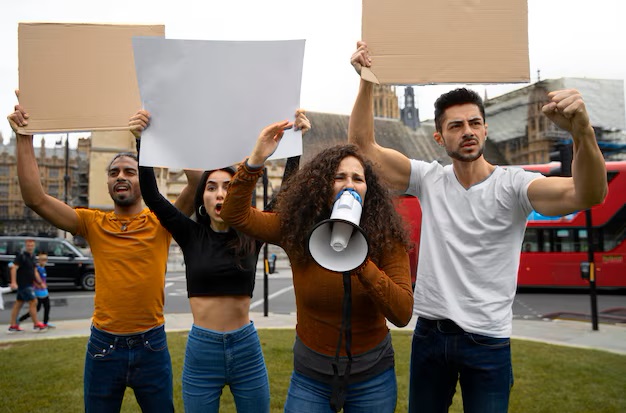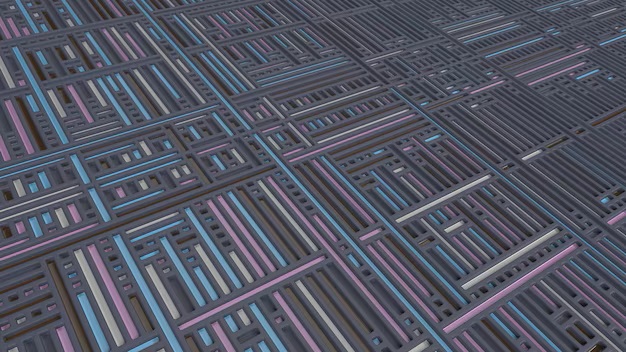The current unrest within the educational institution has precipitated significant challenges for learners, as their academic schedules face unexpected interruptions. A wave of dissent has emerged, highlighting pressing issues that necessitate urgent attention and action. This movement has brought to the forefront long-standing grievances, engaging various members of the academic community in spirited discussions.
The recent upheaval has drawn both support and criticism, revealing a complex landscape of opinions and emotions. As alternative forms of expression unfold, the fundamental routines of aspiring professionals are increasingly jeopardized, causing anxiety among those striving for success in their scholarly pursuits. The situation has sparked a vital conversation regarding the balance between activism and academic responsibilities.
As the commotion continues, the ramifications of these events are becoming increasingly evident. Key occasions that signify the culmination of academic efforts are now overshadowed by a charged atmosphere, forcing individuals to navigate a challenging intersection of commitment and advocacy. The implications of this scenario extend far beyond mere logistical concerns, touching on the heart of what it means to be part of a vibrant, yet tumultuous, learning environment.
Understanding the Context of Campus Protests
The phenomenon of dissent within academic environments has become increasingly noteworthy in recent years. These demonstrations often arise from a collective response to various issues that resonate deeply with individuals on the campus. Although driven by passion, such actions may lead to significant challenges during critical periods of the academic calendar, necessitating a deeper analysis of their implications.
Historical Background: Traditionally, educational institutions have served as platforms for dialogue and debate, allowing participants to voice concerns. Events in the past have shaped the current landscape, influencing how grievances are expressed and perceived by administrators and the broader community.
Current Issues: Several factors contribute to unrest, including sociopolitical matters, economic inequality, and environmental considerations. As these subjects gain prominence, the responses often reflect a broader societal struggle, drawing attention not only within the institution but also in national conversations.
Moreover, the effects of these movements extend beyond the immediate context, potentially altering the dynamics of academic engagement and institutional policies. Understanding this complex interplay is vital for all involved as they navigate the challenges and opportunities presented by such collective expressions of sentiment.
Reactions from Columbia Law Students
The recent events at one of the nation’s most prestigious legal institutions have elicited a wide range of responses from the academic community. Many individuals are expressing their thoughts and feelings regarding the situation, showcasing a blend of support and frustration. This phenomenon has sparked debate about the balance between activism and academic responsibilities, creating a vibrant discourse among the populace of the institution.
Support for Expression
A segment of the scholar body has voiced strong approval for those who are advocating for change. They believe that such demonstrations are essential for fostering dialogue on critical societal issues. These individuals contend that engaging in advocacy is a vital part of their education, emphasizing that it enhances their understanding of the legal frameworks within which they will operate in their future careers.
Concerns About Academic Integrity
<pConversely, others express apprehension regarding the impact these occurrences have on their scholarly commitments. Many fear that the interruptions could compromise their performance and hinder their progression in their legal studies. They argue that while the right to protest is significant, it should not come at the expense of academic integrity and personal achievement.
Impact on Final Exam Schedules
The recent events at the institution have led to significant alterations in assessment timelines, affecting countless learners. The shifts create challenges in both scheduling and preparedness, as traditional routines are interrupted.
As a result of the ongoing situation, the following changes have been observed:
- Rescheduling of assessments to accommodate the new circumstances.
- Extended timelines for preparation, leading to potential anxiety among participants.
- Conflicts with previously arranged commitments and responsibilities.
Many have expressed concerns regarding their ability to maintain focus and perform at their best under the current conditions. The lack of stability in the academic calendar has generated uncertainty, with various implications for academic performance and future opportunities.
- Increased stress levels due to altered timelines.
- Need for improved communication from academic officials.
- Consideration of alternative assessment methods to ensure fairness.
Overall, the alterations in the assessment schedule have created a complex situation requiring attention and adaptation from all involved parties.
Administrative Responses to Student Concerns
In light of recent disturbances that have arisen within the educational environment, the administration has recognized the need to address the grievances expressed by the student body. It is essential to create a dialogue that acknowledges these issues while developing constructive solutions that cater to the varied needs of the community.
Communication Initiatives
To facilitate a better understanding of the underlying issues, several measures have been implemented:
- Organizing regular town hall meetings to provide a platform for open discussion.
- Launching anonymous feedback forms to encourage unfiltered expressions of concerns.
- Establishing advisory committees comprising both faculty and students to collaboratively tackle pressing matters.
Policy Revisions
In response to the feedback received, the administration has committed to reviewing existing policies that govern various aspects of campus life:
- Assessing the current academic schedule to explore flexible options for assessments.
- Enhancing mental health resources and support systems to better support the well-being of individuals.
- Implementing training programs for staff to improve understanding and responsiveness to student sentiments.
Long-term Changes in Academic Policies
The recent disturbances within higher education institutions have prompted a significant reevaluation of academic frameworks and governance. As institutions navigate these challenges, a robust discussion on reforming existing protocols has begun, aiming to enhance resilience and adapt to the evolving needs of the academic community.
Shifts Towards Flexibility in Assessment
One of the primary areas of transformation lies in the assessment methodologies employed by educational entities. Institutions are increasingly considering more adaptive approaches to evaluation, incorporating alternative formats that can better accommodate diverse circumstances. This shift not only aims to reduce stress but also to foster a more inclusive environment for all participants.
Enhancement of Support Systems
Another crucial aspect of this transition involves bolstering support infrastructure for individuals engaged in scholarly pursuits. Universities are recognizing the need for comprehensive support networks that address mental well-being, academic advising, and professional development. By implementing long-lasting changes in these areas, institutions can create a more nurturing atmosphere that promotes success and engagement across their communities.
Lessons Learned from Current Events
Recent occurrences have highlighted the importance of adaptability and the necessity for individuals and organizations to be prepared for unforeseen challenges. In times of turmoil, valuable insights emerge that can guide future actions and enhance resilience. Understanding these lessons is essential for fostering a responsive and proactive community.
First and foremost, the situation emphasizes the significance of communication. Clear and transparent dialogue can prevent misunderstandings and ensure that everyone involved is aware of the evolving nature of circumstances. When lines of communication are open, it cultivates a sense of unity and encourages collaborative problem-solving.
Moreover, these events serve as a reminder of the need for flexibility in planning and execution. Strategies must be adaptable to accommodate changing environments. This flexibility will enable individuals and organizations to pivot quickly and effectively in response to emerging challenges.
Finally, cultivating a strong support network is paramount. During difficult times, the presence of a reliable community can provide assistance, encouragement, and resources necessary to navigate obstacles. Building and maintaining these connections strengthens the foundation for collective resilience.
Q&A: Campus protests upend columbia laws final exams
What were the main reasons behind the campus protests at Columbia University?
The campus protests at Columbia University were primarily driven by student concerns regarding various social, political, and administrative issues. Many students expressed dissatisfaction with the university’s handling of issues such as climate change policies, racial justice, and the treatment of marginalized communities within the campus environment. The protesters aimed to raise awareness about these critical issues and push for substantial changes in university policies, demanding that the administration take their concerns seriously.
How did the protests specifically impact the final exam schedule for law students?
The protests significantly disrupted the final exam schedule for law students at Columbia. With students unable to access exam venues or prepare in a conducive environment due to the ongoing protests, many faced challenges in completing their assessments. The university administration initially attempted to accommodate the situation by rescheduling some exams or offering alternative arrangements. However, the extent of disruption led to considerable anxiety and uncertainty among students, impacting their performance and overall well-being during a critical academic period.
What actions did the university administration take to address the disruptions caused by the protests?
In response to the disruptions caused by the protests, Columbia University administration held emergency meetings with student leaders to understand the issues being raised and to negotiate potential solutions. They initially implemented adjustments to the exam schedule, offering extended deadlines and alternative formats for assessments to accommodate students affected by the protest activities. Additionally, the administration committed to engaging in ongoing dialogues with student groups to address their grievances and seek ways to improve campus conditions moving forward.
What are the potential long-term effects of these protests on student activism and university policies?
The protests at Columbia University may lead to significant long-term effects on student activism and institutional policies. By actively voicing their concerns, students not only raised awareness about urgent social issues but also set a precedent for future activism on campus. These events can empower students to mobilize around other critical issues, fostering a more vibrant and engaged campus culture. Furthermore, if the university responds positively to the protests by enacting meaningful changes to policies and practices, it could pave the way for greater student involvement in decision-making processes and more responsive governance in the future.
What events led to the postponement of final exams at Columbia Law School scheduled for Wednesday?
Protests upend Columbia Law’s final exams as students protested amid ongoing turmoil over pro-Palestinian issues. On Tuesday evening, student protesters occupied Hamilton Hall, causing significant disruptions on the university’s campus in New York City. The university said that due to the escalating situation, which included clashes with New York City police and concerns for student safety, they decided to postpone all final exams scheduled for Wednesday. This decision came after reports indicated that dozens had been arrested during the confrontation between the police and the protesters.
What measures are being taken by university administrators in response to the ongoing protests over pro-Palestinian issues?
In response to the ongoing protests, university administrators are actively reviewing their privacy policy and terms of service to better protect student safety during these demonstrations. The administration is also considering how to support our business while addressing student concerns. Following the tumultuous events, including the arrest of dozens of protesters, many universities are evaluating their responses to student protests, ensuring that they maintain a safe environment while also allowing for free expression of ideas. The situation is evolving, and the university plans to communicate updates and changes to policies, including those regarding remote learning and exam scheduling, as they navigate this challenging period.
What events led to the postponement of final exams at Columbia Law School, and how are they connected to the protests happening in 2024?
The protests at Columbia University in New York, particularly the encampment at Hamilton Hall, have led to significant disruptions on campus, prompting Columbia Law School to postpone all final exams scheduled for Wednesday. These protests are part of a broader wave of demonstrations across the U.S. that respond to the ongoing turmoil over pro-Palestinian issues related to the war in Gaza. As reported by Reuters and echoed by Karen Sloan, the university administration faced pressure as students continued to protest against various policies, leading to a decision that prioritizes student safety and the integrity of the academic environment amid escalating tensions.
Columbia Law School postponed all final exams for the semester due to the ongoing turmoil over pro-Palestinian protesters encamped at the Manhattan campus building.
This decision came after exams scheduled for Wednesday amid ongoing turmoil were evaluated, with Columbia University students voicing their concerns about safety and academic integrity. The school recognized the challenges posed by the protests and is actively working to improve our services for students during this period. Similar disruptions have occurred at institutions like George Washington University and the University of Texas at Austin, highlighting a trend of campus protests upending law schools across the country.
Columbia University students have expressed their thoughts on the recent campus protests upending Columbia Law’s academic calendar, particularly regarding the timing of the postponed exams.
Many students who live in the area surrounding Hamilton Hall on Tuesday morning witnessed the protests escalate, leading to concerns about antisemitism and safety. The school’s administration is focused on addressing these issues while letting you know about any updates regarding the end of the semester and graduation ceremony plans. The recent events have sparked discussions about the impact of high-profile protests and the need for dialogue on college campuses, including at institutions like Yale.
What events have taken place at the university in New York City regarding the ongoing campus protests upend Columbia Law’s community?
The entrance to the university has been a focal point as protests continue. On Tuesday night, an organiser stated that the situation has escalated, with authorities having arrested dozens of individuals. This follows the sentiments expressed in September, where participants voiced their concerns over the Palestinian issue. “This,” one student mentioned, “it’s about raising awareness and showing solidarity.” The protests have not only disrupted classes but have also drawn attention to the university’s response to these issues, especially as many participants are attending remotely amid the changing dynamics of the campus environment.
What significant changes have occurred in the physics department since September?
Since September, the physics department has been undergoing various transformations as part of an initiative aimed at improving student engagement and course accessibility. “This,” the department chair noted, “it’s about fostering a more inclusive learning environment.” One of the notable changes has been the introduction of new online resources and virtual labs, which are essential for students who may not be able to attend in-person classes. Additionally, the department is in the process of changing our URL to better reflect these updates and ensure that students can easily find relevant information. The storm of changes has prompted discussions among faculty about future curriculum enhancements to keep pace with evolving educational needs.









